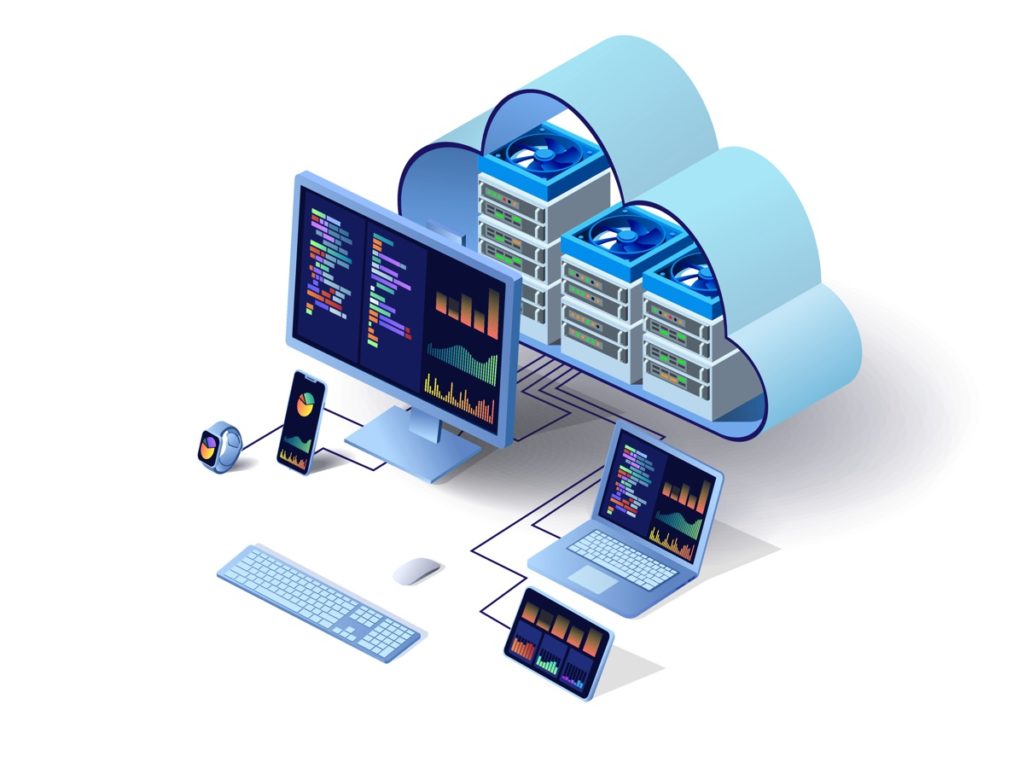
Development and change are paramount in all businesses and industries. An organization that refuses to adapt to incoming changes and trends are more likely to fail and be outshined by better companies who seek endless ways to improve every day. Today, the most relevant setting where businesses perform their operations is through the various digital platforms or the cloud. In order to run your business as smoothly and efficiently as possible, utilizing and dominating the cloud will be helpful.
- What Is “The Cloud”?

The cloud, essentially, is a term for the network of servers in the Internet that operates as a single ecosystem. With the help of the cloud, you won’t need to be physically present in the computer where your data and files are saved, but you can access them anytime and anywhere using an internet-capable device.
In order to operate and make the cloud work for their business, organizations may need to hire services that will oversee various aspects of their business through cloud computing. Utilizing cloud computing into your business significantly lowers your operational costs, maximizes your resources, increases productivity, and runs your infrastructure efficiently.
- Choosing Cloud Computing Services Provider
Cloud computing services are fulfilled by service providers that only center on cloud computing. Your chosen cloud computing service provider will play an extremely crucial role in how your entire cloud system setup will work. Your choice of provider and services will either make or break your shift into the cloud.
As of today, there are three prominent cloud computing service providers: Microsoft Azure, Amazon Web Services (AWS), and Google Cloud. Microsoft Azure is currently growing consistently at a fast pace, and it’s a good choice for businesses who are both starting out with cloud configurations, as well as bigger companies who desire to be consistent and even better.
Once you’ve researched and narrowed down your choice into one service provider, the next thing to do is to know where to get them depending on your location. If your company is located in New Zealand, consider the cloud company Umbrellar, a CSP reseller awarded by Microsoft as the “Partner of the Year” in 2019.
- Classifications of Cloud Deployment
Despite the merits of cloud computing, one has to be careful in using them. Not every cloud computing setup or configuration will work perfectly for your business. Depending on what you have, need, and want, there’s the right cloud deployment option that will suit the cloud computing services applied onto your organization:
- Public Cloud
Being the most common type, public clouds generally mean that your storage, databases, and servers are managed by a third-party cloud service provider, and their services will be delivered via the internet. Public clouds offer near-unlimited scalability, lower costs, excellent reliability, and no maintenance.
- Private Cloud
As the name implies, private clouds are services that are exclusive only to your company, which sits on your establishment’s data center or hosted by the provider privately. They’re typically utilized by organizations requiring extreme security and involvement, such as financial institutions, government agencies, and large-sized businesses. Since it’s a private cloud, you can achieve more control, scalability, and flexibility
- Hybrid Cloud
The hybrid cloud is the middle ground of public and private clouds. They allow your data to transfer back and forth between a public or private setting. With a hybrid cloud deployment, you can enjoy ease of use, control, flexibility, and cost-effectiveness.
In the case of Apple users, they already have their own cloud since 2011 called the iCloud, which is relevant for individual users. iCloud is a cloud storage and computing service which stores and enables access to the user’s data for download to macOS, iOS, and Windows devices, and to share data to other users seamlessly.
- Types of Cloud Services
Aside from different forms of cloud deployments, it’s also important to pinpoint which set of services you’re going to avail. Therefore, your company should research the cloud computing “stack.” The cloud computing services available today are piled in a pyramid as they build on top of the other. Through learning about them carefully, you’ll be able to pick the right one for your business that will help in achieving your business goals.
- Infrastructure as a Service (IaaS): The most basic cloud computing classification that goes on a pay-as-you-go service basis.
- Platform as a Service (PaaS): Ideal for businesses who need an on-demand setting for creating their software applications, without having to set up the underlying requirements involved for development.
- Serverless Computing: Similar to PaaS, but prioritizes functionality without continuous service and management.
- Software as a Service (SaaS): As the topmost layer, SaaS is on a subscription basis that manages everything mentioned, so the organization won’t have to.
Bottom Line
Cloud computing is an extremely advantageous and revolutionary tool for your business, as long as it’s integgrated properly and effectively. Before implementing any cloud computing service into your system, it’s crucial to learn about things that you should know about this service, and the tips above are a great start.







